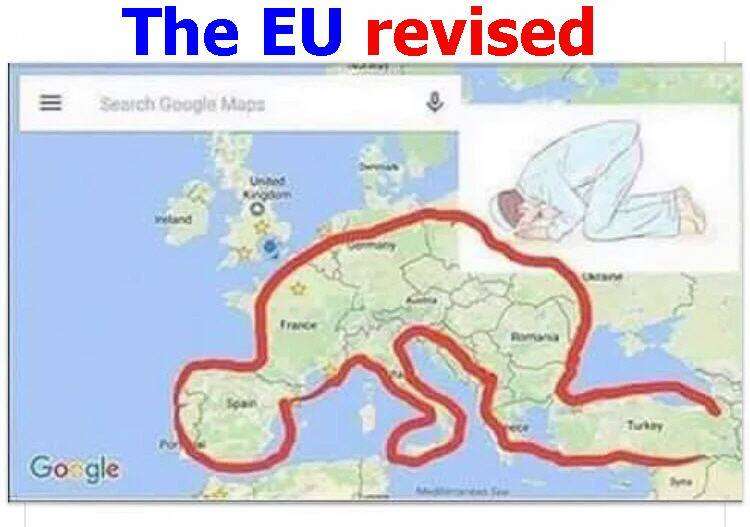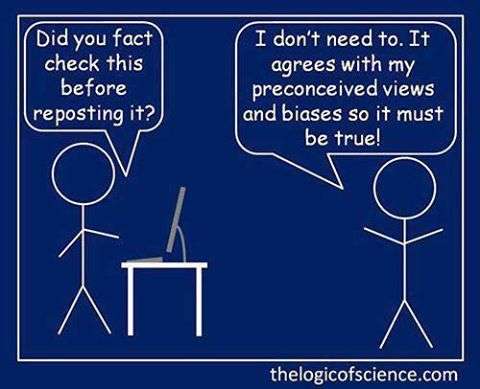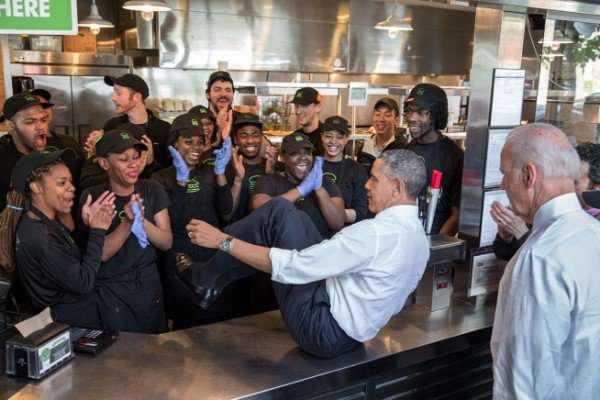My wife and I lately have been engaged in an effort to embiggen the horizons of someone who’s been raised into poverty. Who this person is, is entirely unimportant, what’s important is that I did not say “raised in poverty.” I said raised into, which is such a broadly experienced and frequently-reoccurring problem nowadays that I’m afraid it’s stained us all. It is rewarding in that it is morally clarifying. Every bad habit that leads to an impoverished lifestyle, you don’t have to think on it too hard to see the cause-and-effect connection. At the same time, it’s frustrating. “Think globally, act locally” — so much easier said than done, especially when you stop to consider how many other people are making the same mistakes.
And, of course we have the mindset. Compassion means, somehow, that you have to disconnect an impoverished living situation from any actions that led to it. Which, out here in the land of reality, is the surest way to sustain poverty. Just keep saying to yourself nothing I did caused this, it just happened to me. Keep treating poverty as something outside your control, an event of bad luck. Envision your control as a nothing, and that is what it will be.
Over and over we have to keep asking ourselves: What is it about the human condition, that compels us to destroy ourselves? There is poverty, and so much more. We work hard at being, and staying…poor. Me, in the e-mails:
What makes people impoverished? These days, we here in the U.S. labor under intense social pressure to affix our agreement to the unwritten dictum: Poverty is to be thought of as unavoidable for those who are encumbered by it, a consequence of birth status. This is a disgraceful bit of poppycock, and an insult against the persons come & gone who lived in prior eras, within & outside of the United States. In this nation, in this time, we enjoy a birth status that has opened up more opportunities than any other, so far as we know within all of human history…Poverty, in the US of A Anno Domini Twenty Sixteen, is, mostly, decisional. Intergenerational poverty in the United States, today, with some statistically negligible exceptions, is always decisional. The best foundation by far for arguing some exception to this, is going to have something to do with geography. Transportation is cheap today. The world is small. Never been smaller. Some people say that’s heartless. I think it’s heartless to allow generations of dignified human beings, through the failure to insert an unpopular opinion in the discourse at the opportune moment, to wallow in poverty when it is absolutely unnecessary for them to do so.
Poverty, I have noticed, probably shouldn’t even be a noun at all. It’s more of a verb. “I’m povertying my kids.” “We’re povertying ourselves.”
One of the worst habits I have seen is to skimp. It holds appeal for those who have taken that first step, that step of “I’m tired of never having any money and I’m going to do something about it.” Seems quite logical, right? And, people do work their way out of the misery this way; they do win. It must be an effective habit, because in this modern era in the United States, we have a lot of slop. There are always ways to spend money more wisely. The problem starts when people neglect the income side of things, forget to ask themselves “How much money am I bringing into the household, and how much money could I be bringing into it?” I think just about everyone is guilty. Certainly, I’m not entirely innocent. The sin is one of lack of moderation.
I was raised in a household in which we were obliged to drape the gently used paper towels over the roll of newer paper towels, thus forcing the next paper-towel-user to tap into the reservoir of the “refurbished” before depleting the inventory of the newer. Also, contaminating said inventory. That’s penny wise and pound foolish. It was Depression-era living, kept around 35, 45 years after the Great Depression was over. Not rational. So you might say I’ve spent a lifetime wondering about the proper balance. Thrift is thrift, after all. Look how the rich people live. They’re thrifty — but, not like that. Nor should we expect them to be “thrifty” like that. You have to live sanely to live richly. I’m speaking generally.
The balance is not hard. It has to do with opportunity. You spend less when spending less does not mean you’re buying less — unless buying less is your intention. You spend less when spending less does not cost you something in terms of opportunity.
There are other ways to avoid poverty. One of the other ways I earn for myself a reputation as a heartless bastard, on the subject of poverty, is to ask that most uncomfortable of questions: What have you done to actually help someone lately? It is not my intention to chide. I’m not sitting on a suitably lofty, superior moral platform from which I could do such chiding. The people who object to this would be surprised at the coldly logical rationale, if they could only understand it: Our economy is based on people helping each other…still…for the time being. Here is a person who hasn’t made the economy work for them, the economy is driven by people helping people — so, what have they done? It is surprising how often “never” surfaces as the answer, if we’re going to think on it honestly. You invariably find a long, sloppy trail of get-rich-quick schemes in their wake. Schemes that were never supposed to actually help anyone else. This does not mean the poor-person is being punished for selfishness. You might think of it as an engineering thing: “I think your problem is over in here, somewhere.”
After you dedicate some real time and some real passion to helping other people, and negotiate in such a way that you don’t give away the store, there are other things. Get a skill. You’re born with talent, but a talent is not a skill. Don’t call the boss a skull-fucking moron. Don’t get (someone) pregnant without intent, or at least, planning and dedicated resources. Ah yes…and don’t confuse a formal education with intelligence. Or skill!
Are your friends idiots? That’s a good way to stay poor, hang out with a bunch of slackers with no ambition. How often does “no money for a beer run” emerge as the most pressing problem of the moment? That’s a warning sign.
I’m particularly keen on this one: Say you do help someone else. Or, someone else helps you. Where does the learning happen? Which way does it go? If the person who needs the help does the teaching, and the person extending the help does the learning, that is not a formula for success. Again, it goes back to cold, calculating, values-neutral engineering. And it’s rudimentary engineering. Doesn’t require any brain-horsepower at all, just requires focus. For people to receive help, and say to themselves “Hey, I should have been in a position to help myself, I wonder what that guy did differently from what I did” is not natural. It requires effort to embark on that thought process. But improvement of the situation requires nothing less.
I said there is poverty and then there is so much more. We also work hard at being, and staying…dependent. There is that Brexit vote. One of my Facebook friends, native of Scotland, is a bit upset with me for finding the event so fascinating now that it’s a done deal, and there’s really no news. I sympathize, absolutely. My defense is two-fold: One, there was not much of a story before the vote — a lot of the hubbub in the aftermath of the actual vote, has been generated by those whose job it was to report on it before the vote. And they were lazily phoning it in, because they generally figured it was a safe bet that the Remain side was going to win. Now the vote is done, and they’re surprised, bruised, anguished, butt-hurt. Which brings me to the second part of my sniveling excuse…the story has changed. I guess Britons cannot relate to this, but as a damn Yankee I’m really not inclined to care much about votes on memberships and policies in Europe. I do care, though, about this weird mental disorder, this addiction to dependence. The Stockholm Syndrome.
 The more years I see come and go, the simpler this situation becomes for me. This is a phobia. People have a fear against independence. I suppose they/we always have. Some of us are inclined to defeat such a phobia, others are inclined to learn to live with it, co-exist with it. Like Gollum in The Hobbit, their eyes become accustomed to the dark. Except their obsession is not with power, more like with its opposite, the continuance of a powerless state of being.
The more years I see come and go, the simpler this situation becomes for me. This is a phobia. People have a fear against independence. I suppose they/we always have. Some of us are inclined to defeat such a phobia, others are inclined to learn to live with it, co-exist with it. Like Gollum in The Hobbit, their eyes become accustomed to the dark. Except their obsession is not with power, more like with its opposite, the continuance of a powerless state of being.
Part of the reason I see it as a contrast between light and dark, is the behavior. The addiction to dependence, the phobia against independence, these have a demonstrated tendency to lead to dishonorable behavior. The “Remain” folks would like a do-over. This is exactly the behavior we see in our independence-phobic friends, the liberals, over here in the United States: “Let’s vote, and vote, and vote again, until the vote comes out the way we want and then never vote on it again.” We also see the resolve to live in narratives, to become one’s own self-fulfilling prophecy seemingly without consciously realizing it. The Brexit vote, say the Remainders, will lead to financial chaos and ruin…and they’re working hard to make it happen.
We work hard at being, and staying…ignorant. I see President Obama went on quite a tear on this issue of calling radical Islamic terrorism what it is…
He hammered [Donald] Trump over his “dangerous” mindset and “loose talk and sloppiness” about who exactly America was fighting, implying that Trump’s remarks were actually driving Muslims who might be prone to radicalization into the arms of ISIS.
And he doubled down to repudiate Republican campaigns that he was abetting terrorism by refusing to use the words “radical Islamic terrorism.”
“What exactly would using this label accomplish? What exactly would it change?” Obama asked during remarks at the Treasury Department. “Would it make ISIL less committed to try and kill Americans?” he continued, using a different acronym for ISIS.
“Would it bring in more allies? Is there a military strategy that is served by this? The answer is none of the above,” he said. “Calling a threat by a different name does not make it go away.”
:
Mike Rogers, former head of the House Intelligence Committee, faulted Obama for treading the same kind of political terrain as Trump with his angry remarks.
“This was the chance for the President to try to bring us together. I think he is so focused on this presidential campaign he let himself go,” Rogers, now a CNN commentator, said on “The Lead” with Jake Tapper. “I just don’t think it looked presidential.”
I suppose some among Obama’s fan-base will take issue with that last comment, and they’ve every right to their opinion. But that just makes it all the more bizarre. President Obama’s point, here, is that He is justified in going through the motions of trying to solve a problem, without ever once verbally acknowledging what exactly that problem is…because there isn’t any reason. Yes there’s a nod toward “driving Muslims into the arms of ISIS,” but the pronounced emphasis in this particular diatribe was on “why should I?”
His message is essentially a shoulder-shrug. And yet He put such passion into it that He lost his composure, in so doing denigrating His own office. I mean, even more than usual.
Compare and contrast with a similar session of feckless-excuse-making, last year:
President Barack Obama said Wednesday that he refuses to describe the Islamic State and al Qaeda as groups fueled by “radical Islam” because the term grants them a religious legitimacy they don’t deserve.
“They are not religious leaders; they are terrorists,” Obama said during remarks at a White House event on countering violent extremism. “We are not at war with Islam. We are at war with people who have perverted Islam.”
Obama said the Islamic State in Syria and Iraq, also known as ISIS or ISIL, is “desperate” to portray itself as a group of holy warriors defending Islam. It counts on that legitimacy, he said, to propagate the idea that Western countries are at war with Islam, which is how it recruits and radicalizes young people.
“We must never accept the premise that they put forward, because it is a lie,” he said.
That is, at least, coherent.
Somehow, with this most recent outburst, Obama managed to launch something of a back-n-forth discussion about let’s-not-call-it-what-it-is. And that is the part that concerns me, as well as fascinates me. I even heard one radio guy, certainly no lefty-leaning Obama suporter by any means, denounce the common sense objection of “How you going to solve a problem without calling it what it is?” as “mere rhetorical flourish.”
I guess what’s happening here is that people are really weighing whether or not there’s an up-side, because they are taking the down-side seriously. And maybe that’s to their credit. My problem with that, though, is that I’ve seen so much of this, in families as well as in politics. “Don’t say X, because if you say X you’re going to tick off Y…and Y flies off the handle at anything and everything, so when Y starts wrecking Z it’s going to be all your fault.” I have to ask, at this point, does this ever work? Who’s ever seen this work? I really want to know.
“Crazy Auntie Mabel” is an alcoholic who’s prone to temper tantrums, cannot take responsibility for her own impulse control, so everybody else has to do it for her…walk on eggshells, don’t say the wrong thing. And above all, make sure and call each other out for saying something to tick off Mabel! “Whaddya think you’re doing??” Sorry…can’t relate. There’s a split here, I’m on one side, perhaps on the minority side. And that’s probably because I make a point of not being around people like this. Well, I’m not seeing much inspiration to reconsider that.
This is as self-destructive as the other two, up above. When there is truth, and we make a point of not acknowledging it, we also make a point of not considering it. We begin to behave as if the true thing is not a true thing. This matters, when the thing-that-is-true has something to do with solving the problem that immediately concerns us. Pretending it’s untrue, means compromising our effectiveness at getting the problem solved. Pardon my density, but what part of that is unclear to someone?
We have become so proficient at preserving our own ignorance, that it seems to me our elected and appointed officials are enjoying increased latitude they didn’t have before. To brazenly lie to us, brazenly cover up the lies, brazenly conceal things from us, brazenly admit they’re in the middle of pretending truth is falsehood and falsehood is truth, even right in the middle of insisting how worthy they are of our unreserved faith. At times it seems to me they’re even bragging about it (video behind link auto-plays). I’m not sure what this means. I guess we, as a society, are getting away from the idea that you have to understand a problem in order to do something to productively address it. If that’s the case, I have to wonder where that leads. Can’t be good.
We work hard at being, and staying…aggravated. This is another thing we do to destroy ourselves. It is yet another declining standard. Seems to me we’re stumbling around, especially in the heavily populated areas, being aggravated and occasionally wondering why we’re so aggravated. Unfortunately, it is even more occasional than that that anyone ever consciously or vocally notices: It isn’t supposed to be like this. We shouldn’t be this aggravated this often.
And it isn’t because we’re pre-disposed to being aggravated. There’s a lot of justified aggravation. Far more than there should be. We have built a system that exists to gather aggravation, like a lint trap in a swimming pool filter gathers detritus to keep it out of the pumps — and fling it in our faces like a monkey flinging poo.
I was making a bee line toward the checkout stands in a grocery store the other day, with a bottle of wine in hand. Just that. 1.5L of white wine, nothing else. And I found myself thinking about this scam we have going…supposedly we live under a system of just laws, because the laws are written and ratified by elected officials who are beholden to us. The reason I was thinking it was a scam, was because the self-checkout lanes were all empty and the human-monitored checkout lanes were all full. The lines were snaking backward, into the aisles.
You can’t buy alcohol in a self-checkout lane.
The problem is not that the law happened to be inconvenient to me, in the moment. There is a defense against that, that pretty much all laws are inconvenient now & then, that’s why they have to be laws. That much is reasonable. The problem is a question: Who the fuck wanted this? Whoever said “Without government, who’s going to stop me from buying alcohol in a self-checkout lane”? And while we’re pondering that one, we can think about another question that rises to confront us: With all the self-checkout lanes empty, and all the human-checkout lanes full, who does this law help?
And so I was not in the proper frame of mind to lay my eyes on the sign, affixed to the front of the human-operated checkout lane, several minutes later as I made my approach: Starting July 1, county law will require the store — not to give us bags. We have to bring our own. Now, this is California and we’ve got our share of Gaea-worshipping idjits, to be sure. My irritation here is that they, I’m assuming, have little or nothing to do with this. Oh sure, you’ll find some quotes here and there from those who can’t duck the responsibility and are flailing about for an excuse…
The Board of Supervisors voted 4-1 Tuesday in favor of the ban, joining Sacramento and about 150 other communities in the state that have banned plastic bags that are not reusable. Supervisors said they wanted to end the use of such bags to protect the environment because they essentially last forever.
“This, to me, really is a no-brainer,” said Supervisor Patrick Kennedy. “It has the most benefit for the least inconvenience.”
Supervisor Phil Serna, who introduced the ordinance, said the bags have become ubiquitous and people will adapt to their demise by reusing bags.
Can we drop the phony pretense? This is about fucking with people. Period, full stop. Somehow everything seems to keep coming back to that. And we wonder why we go around aggravated all the time. The answer is, we keep voting for people who want it that way.
No, really, they really do want it that way.
It’s rare when a politician is as honest about his strategy as the New York City councilman largely responsible for the plastic-bag fee about to hit New York City. For his candor, Brad Lander (D-Brooklyn) ought to be considered a new American hero.
Here is progressive politics in 2016: “It works by irritating us into changing our behavior,” Lander said of the bag tax.
It works by irritating us. There can be some debate about the accuracy of one of those verbs, but not the other. Government, when it’s being honest, acknowledges it isn’t your buddy, your helper, your protector, your go-to source for inspiration and dreams.
Nope, the government is now proudly proclaiming itself your irritant.
We work hard at being, and staying…helpless. The Trump phenomenon has revealed this unfortunate tendency on the part of many so-called conservatives who, oddly enough, we see constantly braying about something they call “principles.”
“Never Trump” agitators continue to work themselves up into a sanctimonious lather, indulging in a puritanical alarmism about Trump they normally pooh-pooh when it threatens one of their favored heterodox candidates. Gone are the “half a loaf is better than none” lectures they delivered to hector conservatives into supporting Bob Dole, John McCain, Mitt Romney, Arnold Schwarzenegger, and many other imperfect and idiosyncratic candidates warmly welcomed into their “Big Tent.”
In Trump, they see untold horrors. But Hillary, as the Wall Street Journal‘s Bret Stephens put it, is a “survivable event.” George Will, who has made a career out of tailoring his stuffy but substanceless conservatism to the sensibilities of pretentious, PBS-style liberals, now punctuates with it one more act of preening about supposed GOP indecency.
He is the shocked puritan, who can’t understand how Paul Ryan could end up endorsing such an imperfect man, as if Ryan were presiding over a canonization proceeding rather than a party convention.
I suppose these people, and I, are talking past each other when we speak of “conservatism.” To me, it’s a very important thing because a lot of it is invested in stopping liberalism, which I see as toxic. So it strikes me as odd when people add their voices to such a stoppage, and then when a champion emerges who doesn’t tickle their fancy, suddenly their “principles” compel them to pronounce him inadequate and suddenly liberalism is a “survivable event.” That looks to me more like a cessation of upholding principles, than a continuance of upholding principles. How else should I be reading it?
But I suppose there is an appeal in being helpless, waiting it out while the wrong people are in charge. It spares you from the burden of having to develop a workable plan. Perhaps, for this reason, there is a relationship between this, and the above-mentioned ambition to remain ignorant. It all has to do with the avoidance of actual problem solving. The latest example, at this point, is Pope Francis’ weird comments about gun manufacturers:
“There is an element of hypocrisy [for a Christian] to speak of peace and then manufacture weapons,” Francis said Sunday, according to three separate Italian-to-English translations obtained by the Washington Examiner‘s media desk.
The press was quick to react.
:
Francis did not outright use the word “hypocritical,” and he did not say that it’s impossible for a Christian to deal also in weapons. Both points, however, were heavily implied.
Engaging in an imaginary conversation with a Christian who is involved in the weapons business, the pope said, “‘No, no Father, I do not manufacture weapons. No, no. I have only invested my savings in the weapons’ manufacturers.’ Ah! And why? ‘Because personal interests are highest.'”
Francis continued, saying in a colloquial manner that the behavior of these men calls into question their ability to be good Christians and to follow Christ’s example…
Well, you know what else you have to manufacture when you manufacture guns? Bullets. Bullets aren’t cheap, and some among us who have made the decision to own firearms also burn our way through bullets; some of us more than others. It isn’t just because we love the great outdoors and are drawn to the smell of gunpowder, although there is that. We are directing our household resources toward this so that if we ever need to have such a weapon, God forbid, we’ll be properly equipped and ready to handle the situation.
Pope Francis ignored this aspect entirely. And I have noticed many among his defenders continue to ignore it. Many among those who do not defend him, but don’t criticize him either, see nothing wrong with these remarks. It is quickly becoming normal for people to entirely fail to factor it into their thinking, that a gun can ever be used for self defense. Even though, to many a gun owner, that is the entire point of having one.
What’s really being normalized, I’m afraid, is victimhood. It’s a “shit happens” mentality. If you get mugged you get mugged, just hand over the wallet, and turn over the information to the police so they can fill out the proper forms and report the statistics to the FBI at year-end…if you survive, that is.
Why don’t we have enough money? Why don’t we know what we need to know? Why are we aggravated so much of the time? So desperate, so helpless, so disillusioned, so insecure? It is by choice. Just because we don’t consciously realize it, doesn’t mean it isn’t true. We’re choosing this.









 But maybe that’s not it. Maybe what has inspired these thoughts is the news. It made a big impression on me earlier in the week, when I prowled through several pages of new e-mail, clicking open links for further reading as I went, and when I was done I had these browser tabs all the way across my screen…which is typical…what was out of the ordinary was that every single story had something to do with reality, and the avoidance of it. Every single one.
But maybe that’s not it. Maybe what has inspired these thoughts is the news. It made a big impression on me earlier in the week, when I prowled through several pages of new e-mail, clicking open links for further reading as I went, and when I was done I had these browser tabs all the way across my screen…which is typical…what was out of the ordinary was that every single story had something to do with reality, and the avoidance of it. Every single one. …or, could He just be playing to a crowd that’s feeling this burst. Or maybe this has nothing to do with what people find exciting or titillating? Could it be just a maturity problem? A failure to develop the intellectual hardiness we use when we take in unwelcome information? An unnaturally high
…or, could He just be playing to a crowd that’s feeling this burst. Or maybe this has nothing to do with what people find exciting or titillating? Could it be just a maturity problem? A failure to develop the intellectual hardiness we use when we take in unwelcome information? An unnaturally high  But not completely. There are several different things happening at once here. It’s a mixed bag. People who say “Black Lives Matter is having a peaceful protest” are, quite obviously, of the opinion that if this statement is not correct, the lack of correctness will be costless to them. They are not in the line of fire. Maybe there is a loss of reputation that would come into play? But that doesn’t seem to count today the way it would have counted, let’s say, two hundred years ago. That bothers me more than anything. It’s like we’ve lost honor. Maybe that’s it. People can’t trust each other. This can be observed in the e-mail, often. People spread rumors, they get embarrassed when the rumors turn out to be false, and then they go back and do it again.
But not completely. There are several different things happening at once here. It’s a mixed bag. People who say “Black Lives Matter is having a peaceful protest” are, quite obviously, of the opinion that if this statement is not correct, the lack of correctness will be costless to them. They are not in the line of fire. Maybe there is a loss of reputation that would come into play? But that doesn’t seem to count today the way it would have counted, let’s say, two hundred years ago. That bothers me more than anything. It’s like we’ve lost honor. Maybe that’s it. People can’t trust each other. This can be observed in the e-mail, often. People spread rumors, they get embarrassed when the rumors turn out to be false, and then they go back and do it again.
 The more years I see come and go, the simpler this situation becomes for me. This is a phobia. People have a fear against independence. I suppose they/we always have. Some of us are inclined to defeat such a phobia, others are inclined to learn to live with it, co-exist with it. Like Gollum in The Hobbit, their eyes become accustomed to the dark. Except their obsession is not with power, more like with its opposite, the continuance of a powerless state of being.
The more years I see come and go, the simpler this situation becomes for me. This is a phobia. People have a fear against independence. I suppose they/we always have. Some of us are inclined to defeat such a phobia, others are inclined to learn to live with it, co-exist with it. Like Gollum in The Hobbit, their eyes become accustomed to the dark. Except their obsession is not with power, more like with its opposite, the continuance of a powerless state of being.